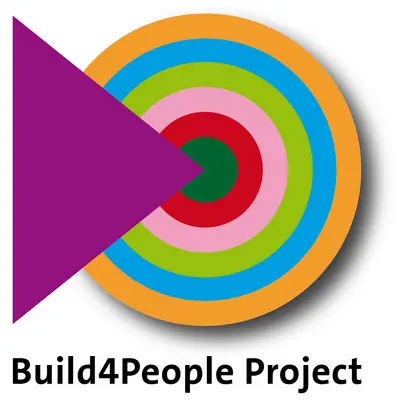Research phase launched: Sustainable urban transformation in Cambodia
How can sustainable urban development be promoted and quality of life improved in a dynamic emerging economy like Cambodia? This is what the multidisciplinary joint project "Build4People" which entered the research phase on 1 April 2021. The Eberswalde University for Sustainable Development (HNEE) is involved in the project led by the University of Hamburg (UHH) in the "urban green" work package.

Project logo

Cambodia's capital Phnom Penh
The overarching aim of the project, which is funded by the German Federal Ministry of Education and Research (Bundesministerium für Bildung und Forschung, BMBF), is to research and promote possible sustainable building and urban development practices in Phnom Penh, the capital of Cambodia. It also aims to identify ways to implement these practices in order to promote urban sustainability and offer city residents a higher quality of life.
Together with HNEE's partner university in Phnom Penh, the Royal University of Agriculture (RUA), HNEE is involved in work package 4, which aims to link ecological aspects of urban green spaces (UGS) with social perspectives in order to increase the awareness of Phnom Penh's population for urban green spaces and their positive effects. Especially in fast-growing cities like Phnom Penh, it is a challenge in sustainable urban planning to actively maintain and develop them.
"One aim is to quantify the spatial density of urban green spaces, i.e. parks, open spaces, avenues, trees, etc. in the city for future urban planning, to recognise their spatial distribution patterns and to provide information for urban planning, e.g. where more green and open spaces can be offered for general use," summarises project manager Prof. Dr Mund. To this end, a modified approach of the Urban Neighbourhood Green Index (UNGI) provides quantifiable information on relevant surface classes of urban green in a geospatial context in the form of maps that will be available to urban planners, city administrations and other decision-makers.
The overall main objective of the project is the statistical analysis and modelling of people's perceived urban quality of life (QoL). In this context, insights will be gained into the relationship between an index-calculated quality of urban green and the way citizens evaluate different types and forms of urban green. Citizen science-based data collection using a smartphone application will provide both the quantitative and qualitative database used to validate recommendation maps and integrate them into the UQol statistical model.
The research phase of the project is expected to end on 30 March 2025, during which time the project consortium will regularly exchange results with the participating project partners and institutions in Cambodia and Germany in the spirit of transdisciplinarity. Sub-project partners are the University of Hamburg (overall coordination and work package: sustainable urban transformation), Otto von Guericke University Magdeburg (work package: behavioural change), the University of Stuttgart (work package: Sustainable Building), the Eberswalde University for Sustainable Development (work package: Urban Green Infrastructures) and the industrial partners Eble Messerschmidt Partner (EMP) from Tübingen (work package: Sustainable Urban Neighbourhoods) and the INKEK, Institute for Climate and Energy Concepts from Kassel (work package: Urban Climate).
Note on image material
The photos available here may be used for reporting purposes. Please note the copyright notice © Michael Waibel